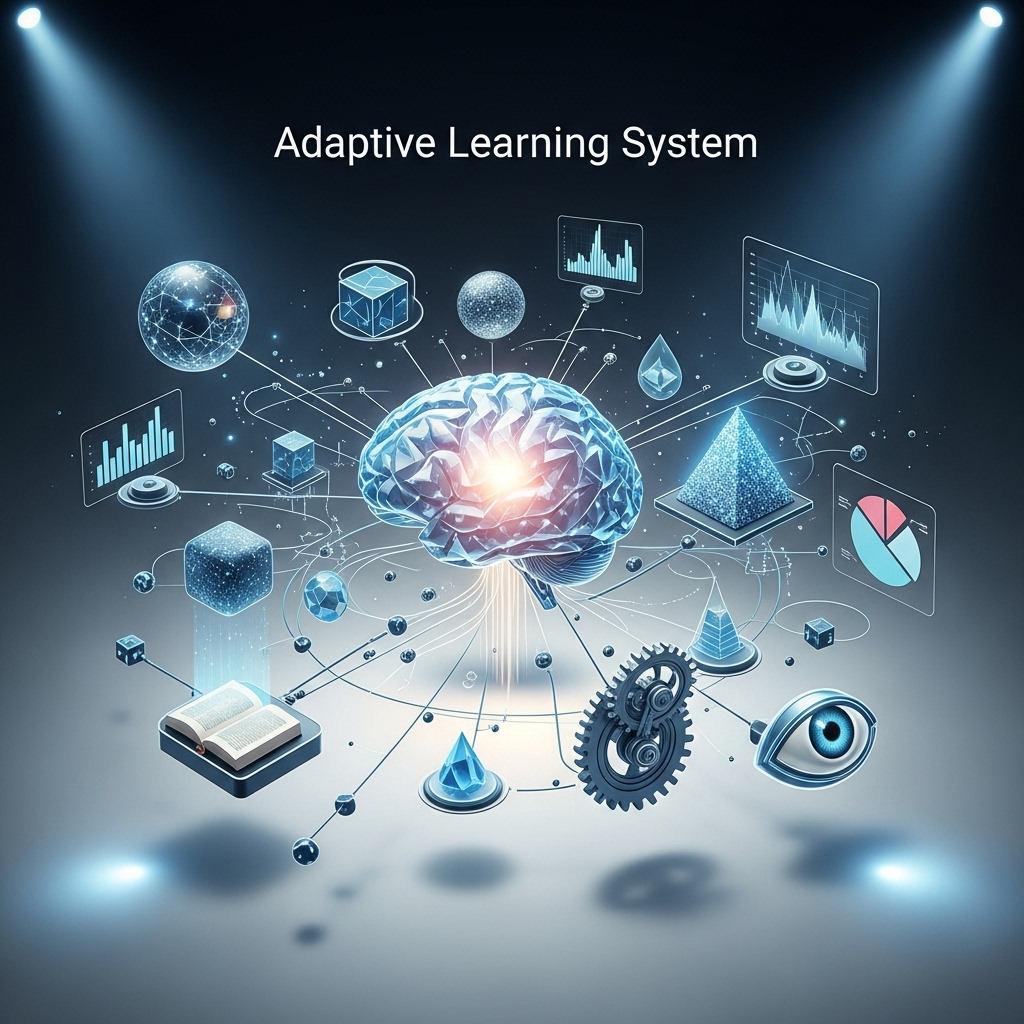Protecting ecosystems and promoting sustainability through intelligent environmental systems
Environmental monitoring faces critical challenges from climate change, biodiversity loss, pollution, and resource depletion while requiring comprehensive data collection and analysis across vast geographic scales and timeframes. Traditional environmental monitoring approaches often struggle with data volume, integration complexity, and the need for real-time response to environmental threats. Agentic AI revolutionizes environmental monitoring by creating intelligent systems that continuously assess ecosystem health, predict environmental changes, and coordinate conservation efforts while optimizing resource usage and sustainability practices.
These autonomous agents analyze satellite imagery, sensor networks, and environmental data streams to provide real-time insights into ecosystem conditions, pollution levels, and climate patterns. The AI predicts environmental changes, identifies threats to biodiversity, and implements adaptive management strategies that protect natural resources while supporting sustainable development and conservation goals.

Climate monitoring requires comprehensive analysis of atmospheric conditions, temperature patterns, precipitation, and greenhouse gas concentrations across multiple spatial and temporal scales. Agentic AI transforms climate monitoring through advanced data fusion, predictive modeling, and real-time analysis that enhances understanding of climate dynamics and supports adaptation strategies.
Our AI agents integrate climate data from satellites, weather stations, ocean buoys, and atmospheric sensors to create comprehensive climate assessments. The system analyzes data across local, regional, and global scales to understand climate patterns, identify trends, and predict future conditions while accounting for natural variability and human influences.
Understanding greenhouse gas emissions and carbon cycles is crucial for climate action and policy development. Our Agentic AI provides comprehensive greenhouse gas monitoring through:

Biodiversity conservation requires comprehensive monitoring of species populations, habitat conditions, and ecosystem dynamics across diverse environments. Agentic AI enhances conservation efforts through intelligent species monitoring, habitat assessment, and ecosystem health evaluation that supports evidence-based conservation strategies.
Our AI provides automated species monitoring using camera traps, acoustic sensors, and satellite imagery to track wildlife populations and behavior patterns. The system identifies species, counts populations, and monitors habitat usage while minimizing human disturbance and providing continuous surveillance of protected areas.
Habitat quality and connectivity significantly influence biodiversity conservation success. Our AI analyzes habitat conditions, fragmentation patterns, and connectivity corridors to identify conservation priorities and recommend habitat restoration strategies that maximize conservation effectiveness.
Understanding the economic value of ecosystem services supports conservation funding and policy development. Our AI quantifies ecosystem services including water purification, carbon sequestration, and pollination while analyzing the economic benefits of conservation versus development alternatives.

Water resources require comprehensive monitoring to ensure quality, availability, and ecosystem health while supporting human needs and aquatic biodiversity. Agentic AI provides intelligent water monitoring through sensor networks, predictive modeling, and automated analysis that protects water resources and aquatic ecosystems.
Water quality can change rapidly due to pollution events, weather conditions, and human activities. Our AI provides real-time water quality monitoring by analyzing sensor data, satellite imagery, and laboratory results to detect pollution events, track water quality trends, and provide early warning of contamination risks.
Our AI monitors aquatic ecosystem health by analyzing biological indicators, water chemistry, and habitat conditions to assess ecosystem integrity and identify stressors that threaten aquatic biodiversity. The system supports adaptive management strategies that maintain healthy aquatic ecosystems while balancing human water needs.
Air quality monitoring requires real-time analysis of pollutant concentrations, emission sources, and atmospheric conditions that affect human health and environmental quality. Agentic AI enhances air quality monitoring through intelligent sensor networks, pollution source identification, and health impact assessment.
Air quality involves multiple pollutants with different sources, transport patterns, and health effects. Our AI coordinates multi-pollutant monitoring networks that track particulate matter, ozone, nitrogen dioxide, and other pollutants while identifying sources and predicting concentration patterns.
Our AI identifies pollution sources by analyzing concentration patterns, meteorological conditions, and emission inventories to attribute pollution to specific sources. The system supports targeted pollution control strategies that maximize air quality improvement while optimizing regulatory resources.

Forest ecosystems require comprehensive monitoring for conservation, wildfire prevention, and sustainable management. Agentic AI provides intelligent forest monitoring through satellite analysis, fire risk assessment, and forest health evaluation that supports sustainable forestry and wildfire management.
Forest loss represents a major environmental challenge requiring rapid detection and response. Our AI monitors deforestation and forest degradation using satellite imagery and change detection algorithms to identify forest loss in near real-time while supporting enforcement and restoration efforts.
Wildfire management requires understanding fire risk, fuel conditions, and weather patterns. Our AI provides comprehensive wildfire risk assessment by analyzing vegetation conditions, meteorological data, and historical fire patterns to predict fire risk and support prevention and preparedness strategies.
Marine ecosystems face threats from climate change, pollution, overfishing, and ocean acidification requiring comprehensive monitoring and protection strategies. Agentic AI enhances marine monitoring through oceanographic analysis, marine biodiversity assessment, and pollution tracking.
Our AI monitors ocean health by analyzing temperature, pH, dissolved oxygen, and other parameters that indicate ecosystem condition and climate change impacts. The system tracks ocean acidification and warming trends while assessing impacts on marine biodiversity and ecosystem function.
Marine protected areas require active management and monitoring to achieve conservation objectives. Our AI supports MPA management by monitoring ecosystem conditions, tracking human activities, and evaluating conservation effectiveness while recommending adaptive management strategies.

Soil health and land use patterns significantly influence ecosystem function, agricultural productivity, and environmental quality. Agentic AI provides comprehensive soil and land monitoring through satellite analysis, soil assessment, and land use change detection that supports sustainable land management.
Soil degradation represents a major environmental and agricultural challenge. Our AI monitors soil health by analyzing satellite imagery, topographic data, and field measurements to identify erosion, degradation, and restoration opportunities while supporting sustainable land management practices.
Land use changes significantly impact environmental quality and ecosystem services. Our AI monitors land use changes using satellite imagery and geographic analysis to track development patterns, identify environmental impacts, and support sustainable land use planning and zoning decisions.
Waste management and circular economy principles require comprehensive monitoring of waste streams, recycling effectiveness, and resource flows. Agentic AI optimizes waste management through intelligent sorting, recycling optimization, and circular economy analysis.
Our AI analyzes waste streams by monitoring composition, volume, and contamination levels to optimize recycling processes and identify circular economy opportunities. The system supports waste reduction strategies and improves recycling effectiveness while minimizing environmental impact.
Environmental contamination requires sophisticated detection, assessment, and remediation strategies. Our AI supports pollution prevention by identifying contamination sources, assessing environmental risks, and optimizing remediation strategies that restore environmental quality efficiently and cost-effectively.

Environmental regulations require comprehensive monitoring, reporting, and compliance verification across multiple jurisdictions and regulatory frameworks. Agentic AI provides automated compliance monitoring and regulatory support that ensures environmental protection while streamlining regulatory processes.
Environmental reporting requires accurate data collection, analysis, and submission across multiple regulatory frameworks. Our AI automates environmental reporting by collecting monitoring data, generating required reports, and ensuring compliance with regulatory deadlines and requirements.
Our AI supports environmental impact assessment by analyzing proposed projects, predicting environmental effects, and recommending mitigation measures that minimize environmental impact while supporting sustainable development. The system provides comprehensive analysis that supports regulatory decision-making and project planning.
Environmental monitoring benefits from citizen participation and community engagement that expands monitoring capacity while building environmental awareness. Agentic AI facilitates citizen science through mobile applications, data validation, and community-based monitoring programs.
Citizen scientists can contribute valuable environmental data through smartphone applications and simple monitoring tools. Our AI coordinates crowdsourced data collection, validates observations, and integrates citizen science data with professional monitoring networks to expand environmental monitoring coverage.
Environmental protection requires public awareness and engagement. Our AI supports environmental education by providing accessible information, personalized recommendations, and interactive tools that help individuals understand environmental issues and take positive action.
Environmental AI continues evolving with developments in quantum computing, space-based sensing, and autonomous monitoring systems. Future capabilities include quantum environmental modeling, autonomous monitoring drones, and fully integrated global environmental intelligence while maintaining focus on sustainability and environmental justice.
Agentic AI in environmental monitoring represents a fundamental transformation in how we understand and protect our planet's ecosystems, providing intelligent, comprehensive, and real-time environmental intelligence that supports evidence-based conservation, sustainable development, and climate action to preserve environmental quality and biodiversity for future generations.
← Back to Main Page